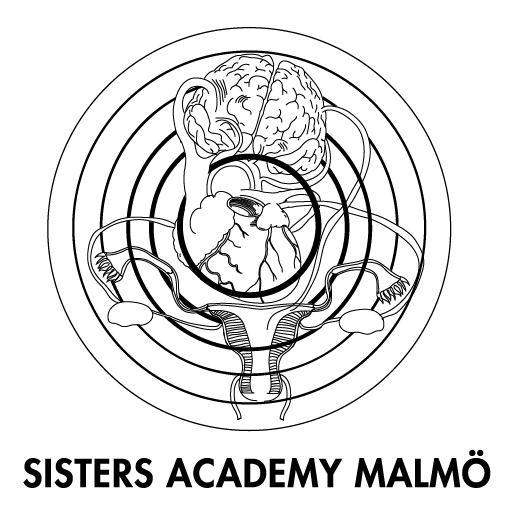The last workshop is over. Number five.
I was lucky to have the neighbouring group joining my group from the start because few people showed up. My colleague volunteered to take his students with him.
Pre-liminally, the group was lined outside the door in the same way as the other days. I began the listening part while they were in the line with eyes closed. They were asked to spread their attention as far as they could to the farthest part of the building. While gathering everyone in the line, I made more sounds around them, runing back and forth, dragging my feet, tapping on metal, scratching on rails.
One by one, they were led eyes closed to the door. They were allowed to open their eyes. Then I gave them instructions on how to enter the room. They were asked do three things when entering: leave their bags and coat by the wall just inside, take a turn around the room and observe the objects, and finally, to find a place to stand with eyes closed, listening.
I stayed outside, but I was able to see through a window when they were settled and the next in line could be led in.
Even a talkative latecomer managed to find some peace before entering and been given time to settle in.
The room was littered with scraps of paper and the number of workshop texts had multiplied and was spread on several tables around the room. The writing stations were orderly and cleared.
After the relaxation exercise, the group was spread like trees in a forest. No echo seemed to roll between these boughs either. I turned to vertigo and read out a poetic text about water and one about birds in order to demonstrate how sounds and words could be enhanced or underlined to give them voice. While reading, I paced the room in time with the rhythm, circling and weaving between the forest trees.
Readers and writers were appointed, slowly, individually. Writers instructed to wait, eyes closed, for at text. Readers to find their own writer to read to. They each took a couple of turns.
In the next phase, we made an echo chain. Participants lined up from tallest to shortest person. The tallest person whispered a text word by word into the ear of the person in front of her, who in turn sent the word down the line. Then with voice and more playful.
After some rounds, the line was made into a circle, and the reader would hear the words going round the circle before returning to her. We played with speed. We played with emphasis. We played with widening the circle with several meters between participants.
Different readers tried different texts. Going from whisper to speech, from slow speed to high speed, but all the time with one word at a time.
Next, a peson was asked to leave the circle. She should then trace a word around the circle, catch one word and follow it on the outside being said all the way round. She could then point out a new person and take his place. He chose a word and followed it going round the circle.
The groups was asked to come up with ways of exploring the echo.
One suggestion was to make tubes of paper and gently say the word into the ear of the person in front of you.
The final phase returned to sounds from the environment: how can you make a representation of a falling piece of paper? Of a piece of paper being crumbled? Being torn?
Make a poem of sounds – describe them or transcribe them.
The post-liminal time for reflexion at the end was very similar to the other workshops. In order to respect all experiences, I make a point of only asking questions to the reactions of the participants if I want them to clearify or exemplify a vague or cursory description (What made you feel pushed to your limits? How did you feel about being bored? Did the feeling persist or did it change?). Otherwise, all expressions count as equally valid reactions to the workshop. No analysis or argumentation should interfere with everyone expressing their experience.
There is an interesting dynamic in going from a strict, highly controlled pre-liminal and early liminal phase into a more loose open atmosphere, almost unperceptibly entering the post-liminal.
I do, however, ask everyone to stand up and find a place in the room so that we can all see each other. This is the post-liminal phase. Reflexions have usually begun prior to this point, but now I take away all materials from their presence and turn their attention to the whole group. Then follow three questions in this order: Will someone please recapitulate what we have been doing? Next, a round with everyone sharing in a few words their immediate reactions to the workshop, and finally, what part of this experience can you bring with you and apply to your life the following week?
No contribution is corrected. If someone only has two words to say, the word is given to the next in line. This is not said explicitly, but simply shown with a nod. If someone begins to say what they think I want to hear, I ask them questions to focus on their own experience or to what would be a feasible suggestion.
I then thank the group. Usually, people talk, ask questions, come up with further reactions, unsolicited.
I make a point of holding the box with their mobile phones for them to collect while exiting, to ensure that I am there when they exit, and to wish them well.
Today has been yet another surprising day. The well seems inexhaustible. Ideas and connections florish and spread.
The Blackbird
My blog here

